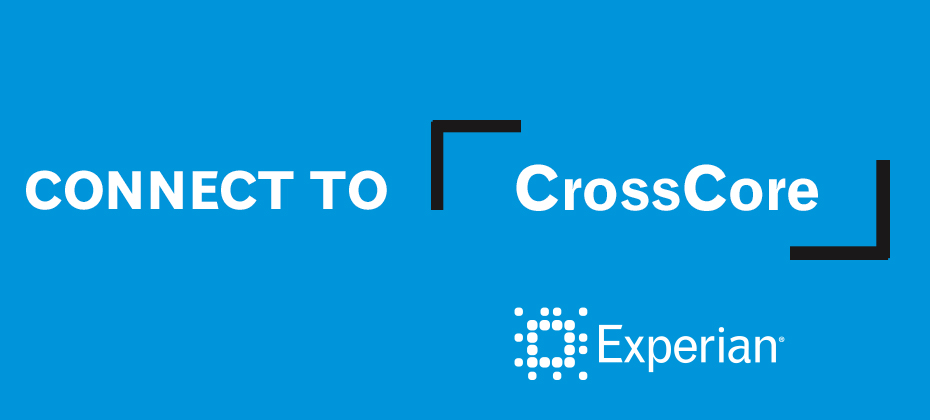Industry’s first smart plug-and-play fraud platform allows companies to connect their own solutions, Experian products and third-party vendors in one place to better protect their customers from fraud threats
Experian unveiled the fraud and identity industry’s first open platform designed to catch fraud faster, improve compliance and enhance the customer experience. Experian’s CrossCore™ gives companies an easier way to connect any new or existing tools and systems in one place, whether they are Experian, internal or third-party partner solutions. This “plug-and-play” capability allows companies to rapidly adapt to changing conditions and risks.
“Our clients have expressed frustration over the lack of a truly holistic industry solution that delivers the level of confidence and control they need without requiring a massive multiyear project to replace everything they have,” said Steve Platt, global executive vice president, Fraud and Identity, Experian. “New fraud threats, updates to regulatory requirements and customer expectations for a hassle-free experience are making it challenging for fraud and compliance teams to keep up. CrossCore will give them the flexibility they need to balance customer protection with customer experience.”
The CrossCore open platform enables organizations to manage services through a common access point that supports a layered approach to managing risks across providers. CrossCore includes powerful workflow and strategy design capabilities that allow fraud and compliance teams to create and adapt strategies based on evolving threats and business needs. This helps them to respond more quickly and reduces the burden on IT.
Fraud and compliance teams must constantly respond to new fraud threats and changing regulatory requirements by implementing new tools on top of existing solutions. “A layered approach is imperative, because fraudsters can break through each layer individually, but they will face greater barriers with each additional layer imposed,” said Avivah Litan, vice president and distinguished analyst, Security and Privacy, of Gartner.[1] Over time, as layers have been added and fortified, systems have become increasingly complex, expensive to integrate and difficult to manage, often increasing customer friction.
A key feature of the CrossCore fraud platform is the ease of integration with third-party partner solutions. At launch, CrossCore will support fraud and identity services provided by third-party partners, including Acxiom® (Identity Solutions), TeleSign and many others already integrated with Experian solutions, with more being added to the platform. Previously, integrating third-party solutions required tremendous time and effort, which often challenged in-house teams to execute in a timely, efficient manner. Through CrossCore, the responsibility of integrating additional tools and systems moves away from those teams to the platform itself, enabling clients to select best-in-class solutions from multiple providers without creating a strain on resources.
Al Pascual, senior vice president, research director and head of fraud & security for Javelin, said, “There are so many great niche solutions to work with, and new ones come out almost every day. To really have a world-class approach, the client has to put all those little things together, because there never will be one vendor who does it all. The market challenge is about how to make it faster and easier to bring things together to enable a more dynamic and fluid approach to managing risk.”
CrossCore features
- Common access through a flexible API connects disparate systems to improve risk controls while reducing integration cost and complexity
- An open approach enables clients to connect and optimize a portfolio of best-in-class solutions across Experian, third-party services and existing systems
- Powerful strategy design and workflow decisioning functions enable fraud and compliance teams to apply services in any combination to get the level of confidence required
- A modern Software as a Service (SaaS) architecture provides scalability and the ability to make strategy changes dynamically with no down time
Experian, which offers fraud and identity services in more than 44 countries, developed CrossCore to address the widespread market need consistently expressed by its clients for a faster, easier way to get more out of their existing systems and add new tools to improve their customers’ experience while minimizing risk.
Companies can begin accessing CrossCore immediately, with the ability to turn on Experian services through a single integration, connect their own fraud and identity capabilities with a common API and turn on new services as they are added. The initial release includes key Experian products: FraudNet for Account Opening; Hunter®, for application fraud detection; Prove-ID, for international identity verification; and Precise ID®, for U.S. identity verification, including knowledge-based authentication. (KBA). Third-party fraud and identity service providers can engage with CrossCore to connect their services.
“Now, companies can implement a new approach to managing fraud and identity services — one that will give them greater control over their risk exposure and enable them to provide a safer and more enjoyable experience for their customers,” added Platt.
Learn more about CrossCore at https://www.experian.com/crosscore
[1]Gartner, Identity Proofing Revisited as Data Confidentiality Dies, Avivah Litan, Dec. 12, 2013; last reviewed on April 28, 2015



